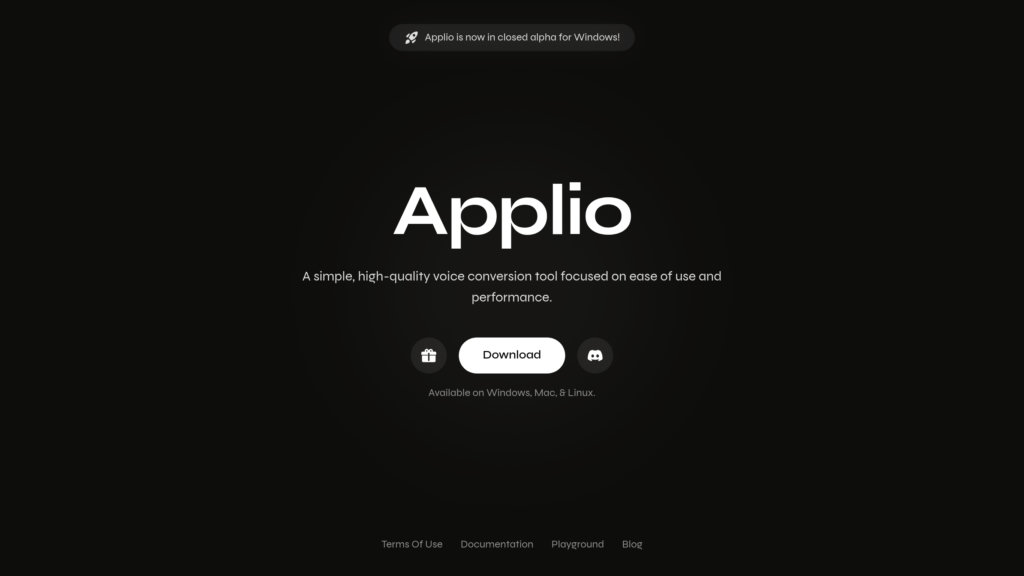Introduction
What is Applio?
Applio stands as a sophisticated AI-powered voice conversion ecosystem, engineered for creators, technologists, and academics who require premium voice replication and modification capabilities. The platform accommodates various deployment methods, including local setup on major operating systems and cloud-based operation through Google Colab, ensuring broad accessibility. By harnessing state-of-the-art Retrieval-based Voice Conversion (RVC) architecture, Applio produces exceptionally authentic and nuanced voice reproductions. As an open-source project, it offers extensive customization via plugins and benefits from vibrant community contributions including comprehensive learning resources. The tool is licensed under MIT terms for personal, educational, and business applications, with established ethical frameworks.
Key Features:
• Employs sophisticated RVC algorithms to generate lifelike voice clones with exceptional clarity and minimal distortion.
• Provides standalone installation for Windows, Mac, and Linux systems with compatible Nvidia graphics cards, alongside browser-based Colab integration for resource-constrained users.
• Features an accessible Gradio web interface complemented by a dedicated Windows application with built-in audio processing and vocal separation capabilities.
• Completely open-source with expandable plugin architecture, thorough documentation, active community support, and continuous feature development.
• Connects users to a vast repository of more than 20,000 pre-trained RVC models covering numerous voice characteristics and styles.
• Enables business utilization under permissive MIT licensing with explicit protocols to promote responsible and compliant implementation.
Use Cases:
• Develop personalized vocal interfaces for digital assistants that reflect specific brand identities or individual preferences.
• Engineer speech synthesis systems to support individuals with communication challenges or special accessibility requirements.
• Generate professional voiceovers, localized dubbing, and special audio effects for media, gaming, and entertainment projects.
• Serve as a research platform for advancing voice synthesis, audio manipulation, and artificial intelligence studies.
• Integrate voice cloning technology into commercial products and services while adhering to ethical and regulatory standards.
